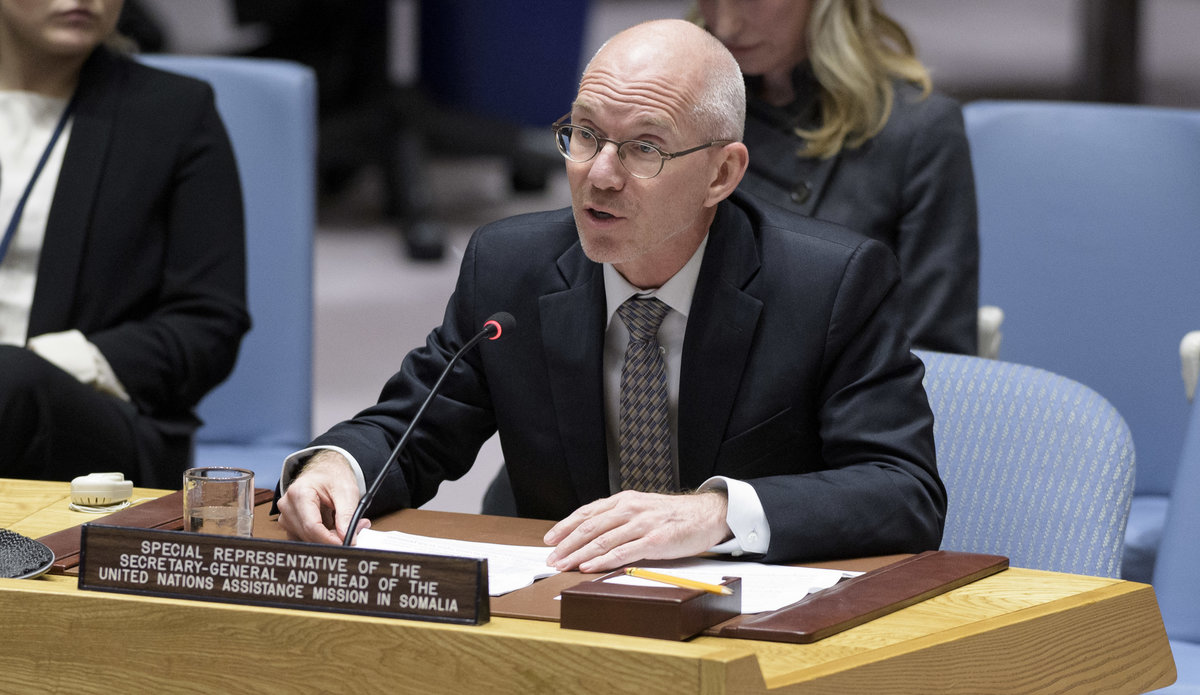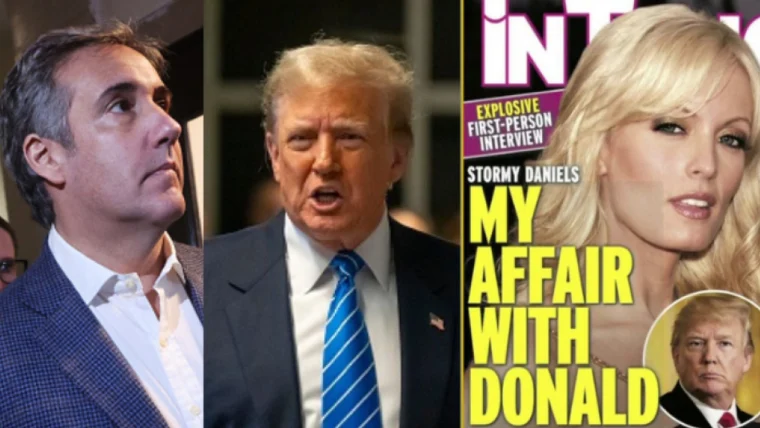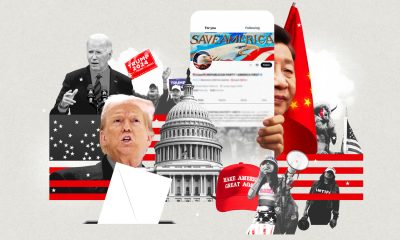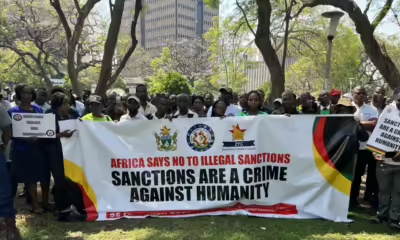Editor's Pick
Empowering Africa’s Economic Future: The Significance of the Digital Trade Protocol

In an increasingly digital world, the importance of trade protocols cannot be overstated, especially for regions like Africa striving for economic growth and integration into the global marketplace. Recently, the spotlight has been on Africa’s Digital Trade Protocol, a groundbreaking initiative designed to streamline cross-border trade, foster innovation, and drive economic development across the continent.
Understanding Africa’s Digital Trade Protocol
The Africa Digital Trade Protocol (ADTP) is a landmark agreement aimed at facilitating digital trade and e-commerce within Africa and beyond. Spearheaded by the African Union, this protocol seeks to create a harmonized framework for digital transactions, data governance, and online commerce, addressing key challenges and unlocking new opportunities for businesses and consumers alike.
Key Components of the ADTP
- Data Governance and Protection: One of the primary objectives of the ADTP is to establish robust data governance mechanisms to safeguard personal information, promote data security, and build trust in online transactions. By outlining clear guidelines for data handling, storage, and sharing, the protocol aims to enhance consumer confidence and facilitate cross-border data flows essential for digital trade.
- Trade Facilitation and Customs Procedures: The ADTP endeavors to streamline trade processes and customs procedures, reducing bureaucratic barriers and inefficiencies that hinder the smooth flow of goods and services across borders. Through digitalization and automation, the protocol aims to expedite customs clearance, improve transparency, and minimize delays, thereby enhancing the competitiveness of African businesses in the global market.
- E-Commerce Regulation and Consumer Protection: With the exponential growth of e-commerce in Africa, the ADTP seeks to establish clear regulatory frameworks to govern online transactions and protect the rights of consumers. By addressing issues such as fraud, counterfeit goods, and dispute resolution, the protocol aims to foster a secure and conducive environment for digital commerce, encouraging greater participation from both businesses and consumers.
- Digital Infrastructure and Connectivity: Recognizing the importance of digital infrastructure in driving economic growth, the ADTP emphasizes the need for investment in broadband connectivity, ICT infrastructure, and digital literacy programs. By bridging the digital divide and expanding access to affordable internet services, the protocol aims to unlock the full potential of digital trade and innovation across Africa.
Challenges and Opportunities Ahead
While the Africa Digital Trade Protocol holds immense promise, several challenges must be addressed to ensure its effective implementation and widespread adoption:
- Capacity Building: Enhancing digital literacy and technical skills among stakeholders is crucial to maximize the benefits of the ADTP and overcome barriers to digital trade adoption.
- Interoperability and Standards: Harmonizing technical standards and interoperability frameworks is essential to facilitate seamless data exchange and interoperability across diverse digital platforms and systems.
- Cybersecurity and Data Privacy: Strengthening cybersecurity measures and data protection regulations is paramount to safeguarding sensitive information and mitigating cyber threats in the digital trade ecosystem.
- Inclusive Participation: Ensuring the inclusive participation of all stakeholders, including small and medium-sized enterprises (SMEs), women entrepreneurs, and marginalized communities, is critical to harnessing the full potential of digital trade for inclusive economic growth and development.
In conclusion, the Africa Digital Trade Protocol represents a significant milestone in the continent’s journey towards harnessing the transformative power of digital technologies for economic empowerment and global connectivity. By addressing key challenges and fostering collaboration among governments, businesses, and civil society, the ADTP has the potential to unlock new opportunities, drive innovation, and propel Africa towards a prosperous digital future. However, concerted efforts are needed to overcome existing barriers and ensure the successful implementation of the protocol, ultimately realizing its vision of a digitally-enabled and inclusive Africa.
Crime
Egyptian Woman Arrested for Attempting to Drug and Sell Child’s Organs Online

Shocking Revelation Unveils Gruesome Plot in Port Said
An Egyptian woman was apprehended in Port Said while allegedly attempting to drug her child and sell his organs to an online trafficking network, echoing a recent incident that shook the nation’s conscience.
In a disturbing turn of events, Egyptian media reports reveal a harrowing plot unfolding in Port Said Governorate, where a mother, identified as “H.TH.D,” was apprehended by security services for attempting to drug her own child with the intent of extracting and selling his internal organs on the internet.
According to investigations into “Case No. 3593 of 2024 Misdemeanors of Flowers,” the woman, who is reportedly divorced and has two children, contacted individuals on social media known to traffic in human organs. She allegedly sent them photographs and videos of her child, Muhammad (8 years old), while he was completely naked, at the behest of these online contacts.
Further revelations emerged as it was uncovered that the mother complied with requests to administer narcotic medications to sedate her child. Subsequently, the child fell into a state of severe fatigue, necessitating his transfer to a hospital. Medical examination revealed that the child had received an overdose of the drug, prompting hospital authorities to alert security authorities.
During interrogations, the woman confessed to communicating with individuals online who instructed her to drug her child and photograph him in compromising positions. She also admitted to intending to sell her child’s organs to these online contacts.
This shocking incident evokes memories of a recent gruesome crime in the Shubra area of Qalyubia Governorate, where a young child was found mutilated, his internal organs removed and placed in a bag beside his body. Investigations into that case uncovered a similar motive – trafficking in human organs.
The apprehension of the woman in Port Said underscores the urgent need for greater vigilance against the heinous crime of human organ trafficking, as authorities work tirelessly to dismantle such networks and protect the most vulnerable members of society from exploitation.
Editor's Pick
Museveni Backs Raila Odinga for AU Top Job Amidst Intense Competition

Ugandan President Yoweri Museveni has endorsed ODM leader Raila Odinga for the chairmanship of the African Union Commission (AUC). During his state visit to Kenya, Museveni reaffirmed his support, emphasizing the shared vision of a united East African Community (EAC).
Despite backing from EAC member countries, Odinga faces significant competition. Somalia has nominated former Foreign Minister Fawzia Yusuf Adam, garnering substantial support from the Organisation of Islamic Cooperation (OIC). Additionally, Seychelles supports former Vice President Vincent Meriton. Djibouti’s Foreign Minister, Mahmoud Ali Youssouf, is also in the race.
Raila Odinga, endorsed by EAC countries, aims to succeed the current AUC chair, Moussa Faki Mahamat, whose term ends in February 2025. Odinga, known for his long-standing political influence in Kenya, seeks to bring his vision of unity and progress to the continental stage.
Somalia’s candidate, Fawzia Yusuf Adam, has secured over half the total support from African nations, thanks to backing from the OIC. Her candidature introduces a significant challenge to Odinga, highlighting the intense competition for the AUC chairmanship.

Somalia’s candidate, Fawzia Yusuf Adam
Seychelles has put forward Vincent Meriton, a seasoned diplomat with a focus on improving executive decision implementation at the AU. His entry further complicates the race, showcasing the diverse array of experienced candidates vying for the position.
In conclusion, the race for the AUC chairmanship is heating up, with strong candidates from across the continent. Museveni’s endorsement of Odinga signifies a strategic alignment within the EAC, but the competition remains fierce with significant support for candidates from Somalia and Seychelles.
Editor's Pick
China and Russia Reinforce Strategic Partnership to Counter US Influence

Xi Jinping and Vladimir Putin Pledge Cooperation Against Washington’s Hostile Pressure
BY GUEST ESSAY:
In a bid to counter US influence, China and Russia have reaffirmed their strategic partnership, pledging to work towards a multipolar world and criticizing the US and NATO’s regional military presence.
Russian President Vladimir Putin concluded his two-day trip to China, reaffirming a strategic partnership with Chinese President Xi Jinping. The two leaders criticized US and NATO’s influence in the Indo-Pacific and pledged cooperation against hostile pressures from Washington. They emphasized their commitment to a multipolar world and discussed resolving the Ukraine conflict through political means. Analysts note that Beijing and Moscow aim to challenge the US-led world order, although China remains cautious about committing to a specific strategy regarding the Ukraine war. The meeting reflects a deepening alliance amid growing geopolitical tensions.
During their meetings, Putin expressed Russia’s willingness to collaborate with China and other global south countries to promote a multipolar world order. Xi reiterated the importance of steering global governance in the right direction. Analysts suggest that both leaders want to present their partnership as a positive force in the global system, striving for a more equitable and inclusive economic and political environment.
In addition to their criticisms of the US and NATO, Xi and Putin emphasized the need for a sustainable security system in Eurasia based on equal and indivisible security. This stance reflects their view of Washington and NATO’s expanding military presence in Asia as a zero-sum game. According to Mathieu Duchatel, director of international studies at the French policy group Institut Montaigne, Xi and Putin aim to undermine Washington’s alliance networks in Asia.
As Switzerland prepares to host a peace summit dedicated to the Ukraine war, Xi and Putin exchanged views on the ongoing conflict. They agreed that the war should be resolved through a political settlement. Xi emphasized the importance of establishing a new, balanced, effective, and sustainable security architecture. He suggested that an international peace conference, recognized by both Russia and Ukraine, could be a step towards resolving the conflict.
Putin appreciated China’s objective and balanced stance on the Ukraine issue and reiterated Russia’s commitment to political negotiations. However, analysts like Philipp Ivanov remain skeptical about China’s concrete efforts to resolve the war, noting that China’s peace plan is more diplomatic than substantive.
The meeting between Xi and Putin follows Xi’s five-day trip to Europe, where some analysts believe Beijing sought to exploit disunity within the European Union. Despite repeated warnings from the United States about the consequences of supporting Russia’s war efforts, Beijing seems confident that potential sanctions from the West may not materialize. Ja Ian Chong, a political scientist at the National University of Singapore, suggests that China is testing Europe’s response to its support for Moscow.
Ivanov noted that Putin’s visit to China likely involved discussions on how to circumvent Western sanctions. He anticipates increased transactions and import-export activities through third countries, such as those in Central Asia. Despite Western attempts to pressure China, analysts believe Beijing will continue to uphold its partnership with Moscow, with no significant reduction in Russia’s access to Chinese dual-use technology.
Overall, the strategic partnership between China and Russia appears to be on an upward trajectory, with both countries committed to countering US influence and creating a multipolar world order.
Analysis
Xi lauds China-Russia ties as Putin lands in Beijing
Editor's Pick
James Swan Reappointed as UN Special Representative for Somalia

By Kasim Abdulkadir:
United Nations Secretary-General António Guterres appoints James Swan as his special representative for Somalia, a role he previously held during the highly contested 2021 election.
United Nations Secretary-General António Guterres has reappointed James Swan, a seasoned diplomat from the United States, as his special representative for Somalia. Swan, who previously served in this capacity during the tumultuous 2021 election, will also lead the United Nations office in Somalia.
Swan’s appointment comes at a critical juncture for Somalia, as the country grapples with political disputes and constitutional amendments. His extensive experience in diplomatic affairs, including previous roles as the US Deputy Assistant Secretary of State for African Affairs and as the special representative of the United States government for Somalia, positions him well for the challenges ahead.
During his previous tenure, Swan played a significant role in facilitating dialogue and reconciliation efforts, particularly amidst the highly contested 2021 election. His diplomatic finesse and strategic acumen were instrumental in navigating complex political landscapes and fostering constructive engagement among various stakeholders.
The United Nations office in Somalia, under Swan’s leadership, will continue to prioritize reconciliation activities, peacebuilding initiatives, and the promotion of human rights. Additionally, the office remains committed to supporting Somalia’s federalization process, strengthening governance structures, and fostering economic recovery.
UNSOM’s Demise: Somalia’s Descent into the Abyss of State Collapse
However, Swan’s reappointment comes amidst uncertainty, with discussions underway regarding the potential closure of the United Nations office in Somalia. Despite these challenges, Swan’s diplomatic leadership and commitment to advancing peace and stability in Somalia are poised to make a significant impact.
As Somalia navigates through political upheavals and constitutional reforms, Swan’s return as the UN special representative underscores the international community’s unwavering support for the country’s peace and development agenda. His tenure is expected to be marked by continued engagement with Somali authorities and regional governments, as well as proactive efforts to address emerging challenges and opportunities on the path towards lasting peace and prosperity.
Editor's Pick
Australia plans limits on international students

Australia to Impose Limits on International Student Numbers
BY GUEST ESSAY:
Australia has unveiled plans to introduce limits on the number of international students allowed to study in the country. The move has sparked debate over the potential implications for the education sector and the broader economy.
The proposed limits come amidst growing concerns about the strain on infrastructure and public services in major cities, where a significant portion of international students reside. The influx of students has also raised questions about housing affordability and job opportunities for local residents.
While international education is a lucrative industry for Australia, contributing billions of dollars to the economy each year, critics argue that the focus on quantity over quality has led to issues such as exploitation of foreign students and declining academic standards.
Proponents of the new restrictions argue that they are necessary to address overcrowding and ensure that resources are allocated more effectively. They also point to the need to prioritize the interests of Australian citizens and residents, particularly in light of the challenges posed by the COVID-19 pandemic.
However, opponents warn that imposing limits on international student numbers could have negative consequences for the education sector, including reduced revenue for universities and job losses in related industries such as hospitality and tourism.
The announcement has reignited discussions about the role of international education in Australia’s economic recovery and its broader significance for the country’s cultural diversity and global reputation. It has also prompted calls for a more balanced approach to managing student intake, taking into account both economic and social considerations.
As the government moves forward with its plans to implement limits on international student numbers, stakeholders across the education sector are closely monitoring developments and advocating for policies that strike the right balance between economic growth and social responsibility.
Editor's Pick
Biden sharply hikes US tariffs on billions in Chinese chips, cars

Biden Administration Escalates Tariffs on Chinese Chips and Cars
BY GUEST ESSAY:
Explore the latest move by the Biden administration to sharply increase tariffs on Chinese chips and cars, analyzing its impact on trade relations and global supply chains.
In a significant escalation of trade tensions between the United States and China, the Biden administration has announced a sharp increase in tariffs on billions of dollars’ worth of Chinese chips and cars. The move marks a departure from the previous administration’s approach and signals a tougher stance on trade with China.
The decision to hike tariffs comes amid growing concerns about China’s trade practices and alleged unfair competition in key industries such as semiconductor manufacturing and automotive production.
The Biden administration has cited the need to protect American industries and jobs as a primary motivation for the tariff increase.
Under the new measures, tariffs on certain Chinese-made semiconductor chips will nearly double, while tariffs on imported Chinese cars and auto parts will also see a significant increase. The move is expected to impact a wide range of industries and could disrupt global supply chains that rely on Chinese-manufactured components.
The decision to sharply hike tariffs reflects the Biden administration’s broader strategy of prioritizing American interests in trade negotiations with China. President Biden has repeatedly emphasized the need to address China’s trade practices, including intellectual property theft, forced technology transfer, and unfair subsidies to domestic industries.
However, the move has drawn criticism from some quarters, with opponents warning that higher tariffs could ultimately harm American consumers and businesses. Critics argue that tariffs function as a tax on imported goods, leading to higher prices for consumers and potentially sparking retaliation from China.
Moreover, the escalation of tariffs could further strain relations between the world’s two largest economies and complicate efforts to address other pressing issues such as climate change, cybersecurity, and regional security. The Biden administration has sought to engage with China on areas of mutual interest while pushing back against perceived economic threats.
The decision to sharply increase tariffs on Chinese chips and cars underscores the challenges facing the Biden administration in managing its relationship with China. Trade tensions between the two countries have persisted for years, with both sides imposing tariffs on billions of dollars’ worth of goods.
As the Biden administration seeks to navigate these challenges, it faces pressure to balance competing interests and priorities. The move to hike tariffs on Chinese chips and cars reflects a broader strategy of promoting American competitiveness and protecting critical industries, but it also carries risks of economic disruption and further deterioration in bilateral relations.
As the situation continues to evolve, the impact of the tariff increase on global trade and supply chains remains uncertain. The Biden administration will need to carefully monitor developments and assess the effectiveness of its trade policies in achieving its broader economic and strategic objectives.
Editor's Pick
Evidence bomb goes off: Star witness Cohen pins porn payment on Trump

The latest revelations from Michael Cohen, unveiling Trump’s alleged involvement in hush money payments to a porn star, shedding light on legal and political implications.
BY GUEST ESSAY:
Michael Cohen, former attorney and fixer for Donald Trump, has disclosed that Trump allegedly ordered a hush money payment to a porn star. The revelation adds another layer of controversy to the tumultuous tenure of the former U.S. president, raising significant legal and political questions.
According to Cohen, Trump directed him to arrange a payment of hush money to Stormy Daniels, an adult film actress, to silence her about an alleged affair with Trump prior to the 2016 presidential election. Cohen’s admission provides further evidence of Trump’s involvement in efforts to conceal potentially damaging information during his presidential campaign.
The revelation has sparked renewed scrutiny into Trump’s conduct and could have significant legal implications. Campaign finance laws prohibit the use of corporate funds for political purposes, raising questions about the legality of the hush money payment and whether it constituted an illegal campaign contribution.
Moreover, Cohen’s disclosure could bolster ongoing investigations into Trump’s financial dealings and potential violations of campaign finance laws. Special prosecutors and congressional committees have been probing various aspects of Trump’s finances and conduct, and Cohen’s testimony could provide valuable insights into these investigations.
From a political perspective, the revelation could further erode Trump’s already tarnished reputation and damage his prospects for a political comeback. Allegations of misconduct and ethical lapses have dogged Trump throughout his presidency and beyond, and Cohen’s testimony adds fuel to the fire of public scrutiny.
However, Trump and his allies have dismissed Cohen’s claims as baseless and politically motivated. They have characterized Cohen as a disgruntled former employee seeking to settle scores with his former boss, casting doubt on the credibility of his allegations.
Despite these denials, Cohen’s testimony adds to the mounting legal and political challenges facing Trump and his inner circle. The revelation underscores the importance of accountability and transparency in government and highlights the need for thorough investigations into allegations of wrongdoing.
As the legal and political fallout from Cohen’s revelation unfolds, the American public will be watching closely to see how Trump and his allies respond. The controversy surrounding the hush money payment to a porn star adds another chapter to the ongoing saga of Trump’s tumultuous presidency, shaping the political landscape for years to come.
-

 Somali Reading2 months ago
Somali Reading2 months agoWax ka ogow awoodda ciidanka illaalada kacaanka Iran
-

 Africa1 month ago
Africa1 month agoSomaliland Politician Squirming Under WARYATV Spotlight: Did He Dodge Questions About SNM Role
-

 Gaza-Israel Conflict1 month ago
Gaza-Israel Conflict1 month agoIran’s Empty Threats: A Delicate Balance Between Deterrence and Diplomacy
-

 Africa1 month ago
Africa1 month agoUnderstanding the Urgency: Why the World Must Pay Closer Attention to Sudan
-

 Crime1 month ago
Crime1 month agoInvestigation Reveals Alarming Trend: American Teens Smuggling Migrants for Profit
-

 Gaza-Israel Conflict4 weeks ago
Gaza-Israel Conflict4 weeks agoIsraeli Military Intelligence Chief Steps Down After Failure to Prevent Historic Terrorist Attack
-

 Analysis3 weeks ago
Analysis3 weeks agoPrince Harry and Meghan’s Diplomatic Mission: Exploring the Potential Impact of Their Visit to Nigeria for Invictus Games Talks
-

 Analysis2 weeks ago
Analysis2 weeks agoRussia warns West against ‘direct escalation of tension’ in Ukraine conflict





























